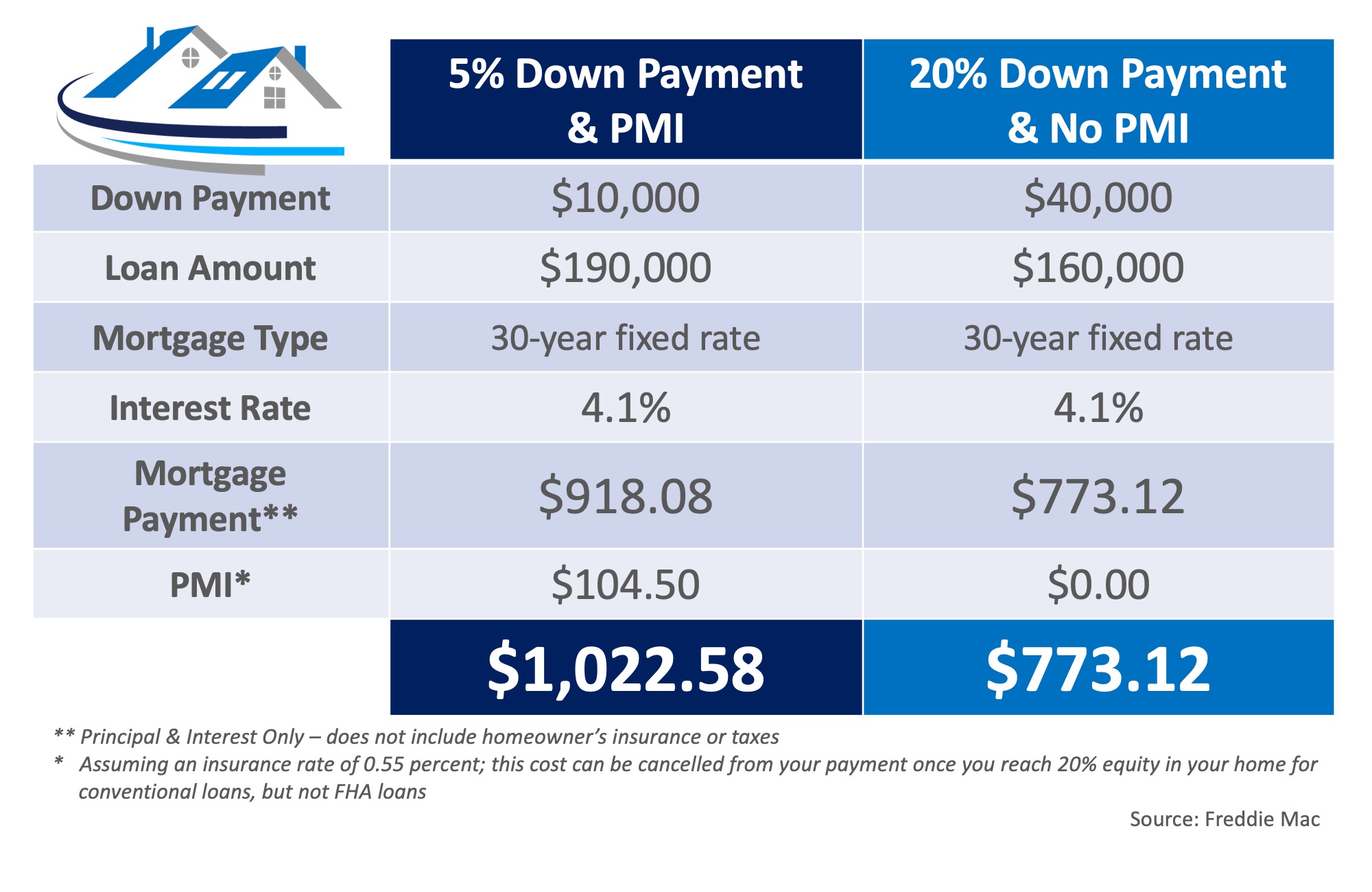
“Whether it is your first time or your fifth, it is always important to know all the facts when it comes to buying a home.”
Whether it is your first time or your fifth, it is always important to know all the facts when it comes to buying a home. With the large number of mortgage programs available that allow buyers to purchase homes with down payments below 20%, you can never have too much information about Private Mortgage Insurance (PMI).
What is PMI?
Freddie Mac defines PMI as:
“An insurance policy that protects the lender if you are unable to pay your mortgage. It’s a monthly fee, rolled into your mortgage payment, that is required for all conforming, conventional loans that have down payments less than 20%.
Once you’ve built equity of 20% in your home, you can cancel your PMI and remove that expense from your mortgage payment.”
As the borrower, you pay the monthly premiums for the insurance policy, and the lender is the beneficiary. Freddie Mac goes on to explain that:
“The cost of PMI varies based on your loan-to-value ratio – the amount you owe on your mortgage compared to its value – and credit score, but you can expect to pay between $30 and $70 per month for every $100,000 borrowed.”
According to the National Association of Realtors, the average down payment for all buyers last year was 13%. For first-time buyers, that number dropped to 7%, while repeat buyers put down 16% (no doubt aided by the sale of their homes). This just goes to show that for a large number of buyers last year, PMI did not stop them from buying their dream homes.
Here’s an example of the cost of a mortgage on a $200,000 home with a 5% down payment & PMI, compared to a 20% down payment without PMI: The larger the down payment you can make, the lower your monthly housing cost will be, but Freddie Mac urges you to remember:
The larger the down payment you can make, the lower your monthly housing cost will be, but Freddie Mac urges you to remember:
“It’s no doubt an added cost, but it’s enabling you to buy now and begin building equity versus waiting 5 to 10 years to build enough savings for a 20% down payment.”
Bottom Line
If you have questions about whether you should buy now or wait until you’ve saved a larger down payment, let’s get together to discuss our market’s conditions and help you make the best decision for you and your family.
To view original article, visit Keeping Current Matters.
Home Prices Are Climbing in These Top Cities
Persistent demand coupled with limited housing supply are key drivers pushing home values upward.
How Buying or Selling a Home Benefits Your Community
It makes sense that housing creates a lot of jobs because so many different kinds of work are involved in the industry.
Tips for Younger Homebuyers: How To Make Your Dream a Reality
An agent will help you prioritize your list of home features and find houses that can deliver on the top ones.
What Is Going on with Mortgage Rates?
Based on current market data, experts think inflation will be more under control and we still may see the Fed lower the Federal Funds Rate this year.
What More Listings Mean When You Sell Your House
if you’re considering whether or not to list your house, today’s limited supply is one of the biggest advantages you have right now.
Now’s a Great Time To Sell Your House
Late spring and early summer are generally considered the best times to sell a house as these are the seasons most people move and buyer demand grows.







.jpg )



